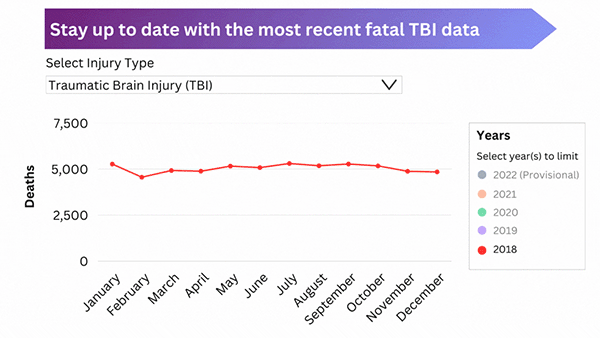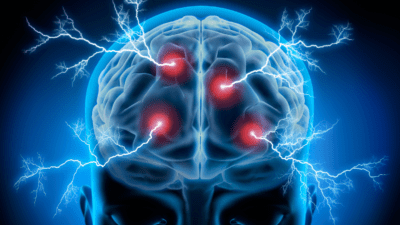The Science of Cognitive Wellness
The Role of Neuropsychological Evaluation
Integrative Care for Concussion / Traumatic Brain Injury Sufferers in Ft. Lauderdale, Tampa and Orlando, Florida
Unlocking Your Mind's Potential: The Transformative Effects of Neuropsychological Assessment
Neuropsychological evaluation plays a vital role in assessing and understanding the cognitive, emotional, and behavioral functioning of individuals who have experienced brain injuries, neurological disorders, or other conditions affecting brain function.
At our Radius TBI in Ft. Lauderdale, Tampa, and Orlando, Florida, this comprehensive neuropsychological assessment, conducted by experienced neuropsychologists, aims to provide valuable insights into a patient’s cognitive strengths and weaknesses, inform treatment planning, and aid their overall rehabilitation process.
Understanding Your Cognitive Abilities: The Insights of Neuropsychological Testing
The Purpose of Neuropsychological Evaluation:
At Radius TBI in Ft. Lauderdale, Tampa, and Orlando, Florida, our neuropsychological evaluations involve tests and assessments designed to measure various aspects of cognitive functioning. These assessments cover attention, memory, language, problem-solving, processing speed, and executive functions.
By conducting these tests, the neuropsychologist can comprehensively understand the patient’s cognitive abilities and identify any areas of impairment or deficits.
Take Control of Your Cognitive Health: The Power of Neuropsychological Testing at Radius TBI

How Neuropsychological Evaluation at Radius TBI Helps:
Diagnosis and Differential Diagnosis:
The psychological evaluations assist in diagnosing and differentiating between various neurological and psychological conditions. By assessing cognitive functioning, these evaluations can help distinguish between different disorders presenting with similar symptoms, leading to more accurate diagnoses and appropriate treatment plans.
Treatment Planning:
The psychological evaluations provide crucial information that guides treatment planning and rehabilitation efforts. By understanding a patient’s specific cognitive strengths and weaknesses, healthcare professionals can tailor interventions to target areas of impairment, develop compensatory strategies, and maximize the individual’s functional abilities.
Baseline Assessment and Monitoring Progress:
An evaluation establishes a baseline of cognitive functioning, allowing ongoing monitoring of a patient’s progress over time. This assessment can be repeated periodically to track changes, evaluate treatment effectiveness, and adjust interventions accordingly.
Academic and Occupational Planning:
For individuals who have experienced brain injuries or neurological conditions, neuropsychological evaluations help identify their cognitive abilities and limitations. This information is valuable for academic planning, determining appropriate accommodations in educational settings, and assisting with vocational rehabilitation to facilitate a triumphant return to work.
From Assessment to Transformation: The Journey of Neuropsychological Assessments
Distinguishing Neuropsychological Evaluation from Neurological Exam:
Neuropsychological testing and neurological examination are distinct yet complementary assessments.
While neurological exams focus on assessing physical signs, reflexes, and overall brain functioning, neuropsychological evaluations delve deeper into cognitive processes and their impact on daily functioning.
Neuropsychological testing involves standardized tests, questionnaires, and in-depth interviews with the patient and collateral sources (e.g., family members) to gather comprehensive information about cognitive and emotional functioning.
The evaluations aim to understand the cognitive implications of neurological conditions or brain injuries, focusing on how these conditions affect thinking, memory, and behavior. They provide insights into cognitive strengths, weaknesses, and functional limitations, allowing for tailored interventions and support.
Neuropsychological evaluations are incredibly valuable in helping understand the cognitive impact of neurological conditions and brain injuries. By conducted by trained neuropsychologist, these assessments provide a comprehensive diagnosis that can be used to plan treatments and monitor progress over time.
These evaluations provide invaluable information to individuals, families, and healthcare professionals. With this information, effective interventions can be developed that optimize the individual’s overall well-being.
If you or a loved one has a neurological condition or brain injury, it’s essential to consider a neuropsychological evaluation as a valuable tool in your treatment plan.

According to CDC: TBI is a major cause of death. This chart above shows the number of TBI-related deaths by month and year Source: https://www.cdc.gov
Meet Our No.1 Best Neuropsychologist in Tampa, FL Location
At Radius TBI, we pride ourselves on providing exceptional care for individuals suffering from traumatic brain injuries (TBI) and concussions. Our integrated medical team in Tampa, FL, includes some of the most respected and experienced...
Read MoreQEEG Brain Map Interpretation
In the world of neuroscience, one of the advanced tools used to understand brain function is the Quantitative Electroencephalogram (QEEG), often referred to as brain mapping. But who interprets these intricate brain maps, and why...
Read MoreSleep Disturbance
Did you know? Dealing with a traumatic brain injury (TBI) often means navigating a range of complications, one of the most prevalent being sleep disturbances. Surprisingly, 30-70% of individuals with a TBI experience some form...
Read MoreUnderstanding Routine EEG, QEEG, and Ambulatory EEG Tests
EEG, QEEG, and Ambulatory EEG are distinct forms of electroencephalography, each serving unique purposes in the diagnosis and monitoring of neurological conditions.
Read More





